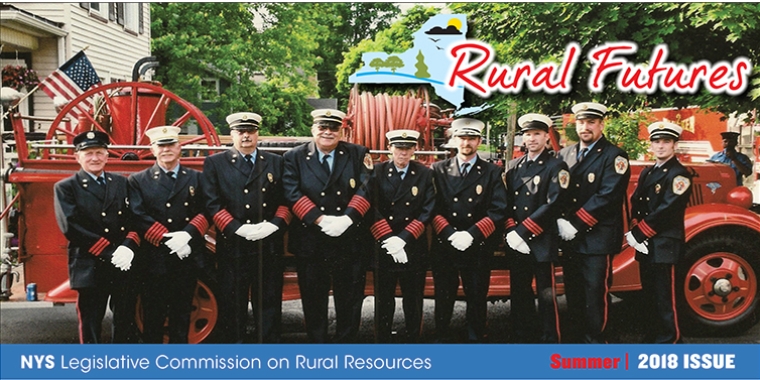
Senator Helming Announces $1 Million Investment to Combat Lyme Disease
Senator Pam Helming
June 22, 2018
-
ISSUE:
- Lyme Disease
GENEVA – Senator Pam Helming today announced that the New York State Senate approved a resolution to provide a record $1 million to help fight Lyme and tick-borne diseases (TBDs). The new funding will help support a wide variety of local investments identified by the Senate’s Task Force on Lyme and Tick-Borne Diseases, of which Senator Helming is a member. The funding will help increase education, research, prevention, and treatment options and combat the ongoing increase of tick-borne diseases across the Finger Lakes region and New York State at large.
As Senate Chair for the Legislative Commission on Rural Resources, Senator Helming hosted an Informational Forum on Lyme and Tick-borne Diseases last September in Canandaigua. At this event, a panel of experts including representatives from Cornell University, SUNY Upstate Medical University, the Ontario County Public Health Department, and SUNY Adirondack, presented to more than 150 people and answered their questions. When asked if they had been personally affected by Lyme or tick-borne diseases, or knew someone who was, the vast majority of the audience raised their hands.
“Lyme and other tick-borne diseases continue to be on the rise, and I have been working hard to secure important funding and resources for our communities affected by this growing public health issue. I am proud that we were able to secure such historic funding for this growing problem, and I want to thank my colleague Senator Sue Serino for her leadership on this important issue. We have to continue to fight for resources for our communities – including children, who are at the highest risk of Lyme disease exposure, as well as our hardworking farmers whose livelihoods depend on working outside all day,” Senator Helming said.
Senator Helming participated in the Senate’s Task Force on Lyme and Tick-Borne Diseases public hearings last August and most recently in May. At the hearing in May, experts from the Department of Health, Stony Brook University, SUNY Adirondack, and Cornell University updated the Task Force on their ongoing research and projects and provided recommendations for moving forward.
Highlights of the Senate resolution include:
- Cornell University – $130,000 to study the distribution of ticks and the diseases they carry in various parts of the state through the Tick Outreach and Surveillance Project for New York. Run through the New York State Integrated Pest Management (IPM) Program at Cornell University, the research will primarily focus on the spread of ticks by species within certain counties. Other areas of study include ways to reduce human exposure to TBDs, tick management workshops, and best practices in schools, camps, parks, and places where people gather outdoors.
- New York State Association of County Health Officials (NYSACHO) – $112,000 to increase public awareness throughout New York through eight to 10 regional educational lectures. The informational seminars will focus on community awareness, best practices for TBD investigation, tick surveillance, and disease prevention to local parts of the state heavily impacted by the effects of Lyme and TBDs.
- SUNY Adirondack – $100,000 for laboratory research on lesser-known TBDs, including infectious diseases known to be co-morbid with Lyme disease, such as Babesia, Bartonella, Ehrlichia, Anaplasma, and Powassen virus. The work would help provide much needed information about the rates of these co-infections in people with Lyme disease in New York.
- New York State Department of Health – $60,000 to increase the number of tick collection sites in New York and the number of ticks tested for pathogens statewide. The funding will also be used to hire temporary staff to assist with sampling and testing as well as targeting of educational messages in a more efficient manner.
- SUNY College of Environmental Science and Forestry – $50,000 to monitor seasonal variations of ticks in Western and Central New York to help provide a better understanding of how disease transmission risks are changing. The study will also provide public information to better explain the risks of tick exposure.
- Cornell Cooperative Extension – $26,000 for a series of regional Lyme and TBD forums to be hosted throughout the state. The forums will help provide the public with information on tick identification, tick bite prevention, Lyme disease and co-infection awareness, impact on pets and livestock, and health resources that are available for individuals who have been bitten by a tick.
Share this Article or Press Release
Newsroom
Go to NewsroomSenator Helming Honors Retiring Newark Police Chief David Christler
October 19, 2018

Senator Helming Provides Guide to Emergency Services Grants
October 12, 2018

Summer 2018 edition of Rural Futures
September 19, 2018

